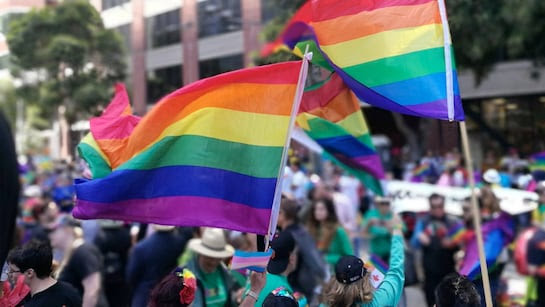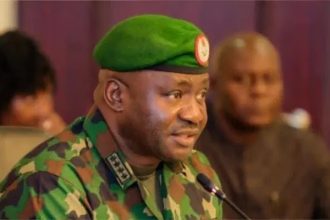For the first time in Vatican history, over a thousand LGBTQ Catholics and their allies are undertaking a pilgrimage this weekend, highlighting what participants describe as a vital sign of diversity within the Catholic Church.
Around 1,400 people from nearly 20 countries are participating in the event, which is part of the Catholic Church’s Jubilee holy year.
The pilgrimage was organized by La Tenda di Gionata (The Tent of Jonathon), an Italian association advocating for greater inclusivity among the faithful.
Although the pilgrims did not have a private audience with Pope Leo XIV, the event marks the first time an LGBTQ-focused pilgrimage has appeared on the official Jubilee schedule, even though LGBTQ groups have visited the Vatican previously.
Yveline Behets, a 68-year-old transgender woman from Brussels, walked 130 kilometres (80 miles) along the ancient Via Francigena route alongside 30 other LGBTQ participants to reach Rome.
She reflected on her expectations of the Church, “One should not misuse the word ‘welcome’. We are not just some outsiders who are welcomed sometimes, or more regularly — we are part of the same family.” Wearing a rainbow LGBTQ t-shirt, she also spoke of her challenges with other Catholics: she said she “does not always feel acknowledged.”
A Rainbow Cross into Saint Peter’s
Following the tradition of millions of pilgrims before them, participants in Saturday’s LGBTQ pilgrimage walked the main road to the Vatican.
Carrying a rainbow-coloured cross, they passed through the Holy Door into Saint Peter’s Basilica.
Hugo, 35, from Quebec, Canada, who declined to provide his surname, said the pilgrimage sends a “really important signal for us to feel more included.” He added that he hoped the event would “let people who are on the fence to allow themselves to be more welcoming towards homosexuals in the Church.”
Yet the path to broader acceptance remains challenging. For two millennia, the Catholic Church has taught that homosexual acts contravene its procreative-focused view of sex, and gay couples are considered “intrinsically disordered.”
“There are fears and a sort of misunderstanding when it comes to the life that homosexuals lead,” Hugo said. “If everybody got to know everyone else, I think a lot of barriers would come down.” He also noted that “a lot of obstacles remain,” particularly for couples seeking the Church’s blessing for same-sex marriages.
Pope Francis’ Legacy and Pope Leo’s Approach
Pope Francis, who passed away in April, worked to make the Church more inclusive without changing doctrine.
His 2023 decision to allow priests to bless same-sex couples sparked strong opposition from conservative factions, especially in Africa.
His successor, Pope Leo, has reaffirmed that marriage is “a union between a man and a woman” but will maintain Francis’s allowance for blessings of same-sex unions.
Beatrice Sarti, an Italian mother accompanying her gay son on the pilgrimage, emphasized that “there is still a long way to go,” particularly in changing mindsets among Catholics. “Many of our children no longer go to church… because they are made to feel that they are wrong,” the 60-year-old from Bologna said. “That absolutely needs to change. The first thing to do is train educators, the seminarians, the priests and the bishops, starting at the grassroots. It is a very long process.”







